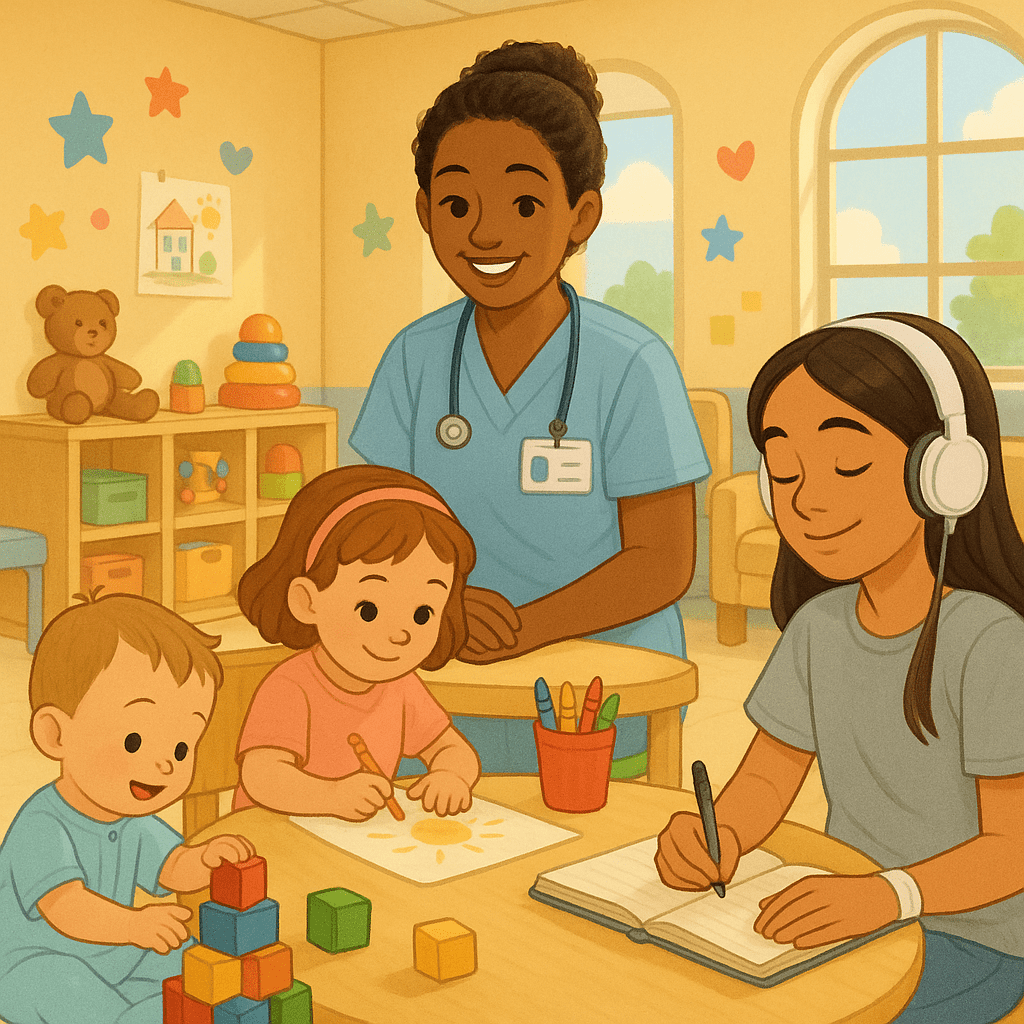Play is more than fun—it’s therapeutic, especially in pediatrics. For nurses preparing for the NCLEX, understanding play therapy ideas helps in supporting children’s coping, growth, and emotional well-being during hospitalization. Whether you’re a registered nurse (RN nurse) in pediatrics or a nursing student studying through a nursing bundle, mastering developmental play strategies can make a difference in your practice.
Why Play Therapy Matters in Nursing
Children often struggle to express their feelings with words. Play therapy allows them to communicate, reduce stress, and develop coping skills in a safe way. For the nurse, it’s also a key tool in promoting trust, comfort, and emotional healing. This concept is commonly tested on the NCLEX, especially in pediatric growth and development questions.
Play Therapy for Toddlers (1–3 years)
Toddlers learn best through sensory and parallel play. Nursing interventions should focus on toys and activities that stimulate their senses, fine motor skills, and independence.
Effective Play Therapy Ideas:
- Building blocks – Helps with coordination and independence.
- Simple puzzles – Encourages problem-solving.
- Picture books with textures – Stimulates imagination and sensory learning.
- Stuffed animals or dolls – Provide comfort during hospitalization.
- Water play or coloring – Relieves stress in a safe, creative way.
💡 Nursing Tip: Always supervise toddlers closely and ensure toys are safe, non-toxic, and age-appropriate.
Play Therapy for Preschool & School-Age Children (3–12 years)
As kids grow, they engage in associative and cooperative play, making interaction with peers and structured activities more meaningful.
Nursing Play Therapy Strategies:
- Role-playing games (doctor/nurse kits) – Helps them process hospitalization.
- Arts and crafts – A therapeutic outlet for expression.
- Storytelling and puppets – Effective for communication of fears and emotions.
- Board games or team play – Encourages cooperation and coping.
Play Therapy for Teens (13–18 years)
Teens need outlets that respect their growing independence, identity, and emotional challenges. Registered nurses should adapt play therapy for adolescents by incorporating maturity and choice.
Effective Play Therapy Ideas:
- Journaling or art therapy – Encourages self-expression.
- Music therapy – Provides emotional release.
- Sports or group activities – Builds teamwork and stress relief.
- Digital tools (apps, video games) – Can be used responsibly in structured therapy.
- Peer support groups – Allows teens to share experiences.
💡 Nursing Note: For teens, therapy should promote autonomy while providing emotional support, especially during long hospital stays.
NCLEX & Nursing Bundle Connections
The NCLEX often tests pediatric growth, development, and appropriate interventions for play. Many nursing bundles include developmental milestone charts and play therapy recommendations to help RNs prepare. As a nurse, knowing age-appropriate play is essential in both exams and practice.
Final Thoughts
Play therapy isn’t “just play”—it’s a clinical tool that supports healing, reduces stress, and promotes development. For toddlers, focus on sensory and parallel play. For teens, encourage expressive, independent activities. Whether you’re an RN nurse, nursing student, or preparing with a nursing bundle, integrating these play therapy ideas ensures better pediatric care and NCLEX readiness.

